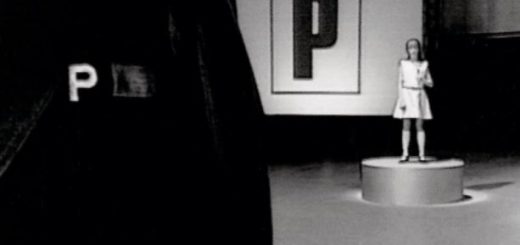Plastic by Portishead Lyrics Meaning – Unraveling the Enigma of Emotional Isolation
Lyrics
I don’t know what you see
Of course I care
I won’t pretend
It’s just a thought I’ve
Said enough
Don’t you know life turns me
Always wants me
I can hardly pray
I could try
But don’t know what you hear
‘Cause in my heart
You were so clear
It’s just a thought I’ve
Said enough
Don’t you know life turns me
Always wants me
I can hardly pray
On your stage
A show that you create
All by yourself
I am nowhere
You never noticed
You were so sure
Don’t you know life turns me
Always wants me
I can hardly pray
In the vast pantheon of music that surges into the realms of the ineffable, few songs manage to evoke a cocktail of raw emotions infused with an ethereal quality quite like Portishead’s ‘Plastic’. The track, a cornucopia of haunting melodies and cryptic lyrics, is much more than it appears on the surface. It speaks to the fragility of human connections and the facades we maintain.
Beth Gibbons, with her signature mesmeric charm, carries the essence of ‘Plastic’ on her vocals, imparting a vulnerability that’s palpable. In this piece, we sift through ‘Plastic’ note-by-note and word-by-word, attempting to peel back the layers of this complex masterpiece.
The Haunting Overture of the Heart: A Melodic Insight
From its inception, ‘Plastic’ sets a tone that is both melancholic and suffused with a sense of longing. There’s an immediacy to the discomfort and estrangement encapsulated in the song’s minor keys and the sparse, industrial sounds that underscore the melody. This aural landscape Portishead creates is evocative of the emotional barrenness that comes with inexpressible pain and detachment.
Differentiating itself from the conventional trip-hop ambiance of Portishead’s earlier works, ‘Plastic’ introduces a discomforting stillness that speaks volumes. The ethereal background, threaded with harrowing beats, serves as a canvas for Gibbons’ soul-stirring vocals, binding the listener to the track’s convoluted emotional core.
Struggling with the Specter of Misunderstanding
‘I wonder why / I don’t know what you see / Of course I care / I won’t pretend,’ Gibbons confesses in lines that mirror the dissonance between inner truths and outer perceptions. These initial verses are a gateway into the psyche of an individual who oscillates between self-awareness and bewilderment over how others perceive them.
The song’s lyrics act as an intimate soliloquy, presenting a narrative of someone trying to navigate the muddy waters of interpersonal relationships. There’s a poignant acknowledgement of the genuine struggle to make oneself heard and understood, despite the inherent divergence in perspectives.
Behind the Veil: The Hidden Message in ‘Plastic’
Most striking in ‘Plastic’ is the undercurrent of disillusionment that flows just beneath the surface. ‘You never noticed / You were so sure,’ Gibbons laments with a nuance that replaces accusation with a resignation over being unseen. This disclosure signals an existential ache; the pain of utter invisibility to someone who’s gaze you seek.
Interpreted as an allegory, ‘Plastic’ could be seen as an ode to the human condition in the modern world — the brittle nature of self in the shadow of others’ expectations and the relentless quest for authenticity amidst a society often more inclined towards the artificial.
Decoding the Lament: Dissecting the Memorable Lines
Within ‘Plastic’, certain phrases sear themselves into memory, ‘Always wants me / I can hardly pray,’ a compelling paradox that paints the picture of being at once desired and dejected. The internalization of external pressures manifests as a spiritual dearth that renders prayer — a symbol of hope and sanctuary — almost impossible.
Through Gibbons’ portrayal, these lines condense a world of unspoken emotion, serving as a reminder of the burdensome weight of others’ expectations and the longing to break free from the theater of pretense often required in relationships and society at large.
A Theatrical Display of Self: The Projection We Cannot Escape
‘On your stage / A show that you create / All by myself / I am nowhere,’ the song contemplates the idea of life as performance, where individuals constantly showcase themselves, willingly or not, on the stages built by others’ perceptions. ‘Plastic’ probes the isolation that results from this imposed display, a loneliness that stems from the failure to be acknowledged beyond the act.
Portishead cultivates an understanding that emotional resonance in ‘Plastic’ is not about clarity, but about the palpable absence of it. In doing so, ‘Plastic’ becomes an anthem for the unseen and unheard, a haunting reprise for those yearning for genuine connection in a world that too often settles for the superficial.








